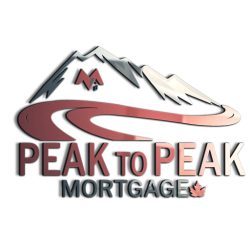The Collateral Charge is something that you may see in your mortgage approval that gives you an option to register your mortgage at the Land Title Office for more than what is being funded as your current mortgage amount.
Most of the larger banks now offer this service under different names, for example: Scotiabank refers to their program as the STEP, RBC refers to their program as the Homeline Plan, and TD Bank calls their program the Collateral Charge or FlexLine.
Why is this offered?
This is offered to you as an option in case you want to refinance or access your equity in the future. In the usual course of business, if you approach your bank and ask them for a refinance or equity take out, they will take the steps of reviewing your application, checking your credit & income, and will probably order an appraisal to determine the current value of you home. Once approved, the bank sends out new mortgage instructions to your lawyer or notary to have the mortgage re-registered for the higher amount, and then the refinance is funded. This usually incurs a legal fee of approximately $800 to $1,000. By registering the mortgage for a higher amount at the beginning, as long as your requested loan amount is within the collateral charge limit, you can go through the process of accessing your equity without the last step of having the new mortgage amount re-registered through the services of a lawyer or notary.
TD Canada Trust gives you the option of registering the Collateral Charge for the principal amount of your current approved mortgage amount, or up to 125% of the property value.
Are there extra costs to do this?
No. The banks do not charge anything to register this way. Depending on which lender you are working with, usually whether or not you proceed with a Collateral Charge is decided and instructed at the time of the mortgage approval. Lawyers and notaries generally do not charge anything extra in their legal fees to register the mortgage this way.
Are there any drawbacks?
The Collateral Charge encompasses all of your borrowings with the lender whether secured or unsecured. So, if you default on one of your unsecured debts with the lender, technically they can use their collateral charge to start foreclosure on your home. If you do not want a collateral charge approval, a mortgage from a monoline lender could be viable alternative.
Additionally, if you approach your lender for a refinance down the road, and they say that you do not qualify for the increased amount, you may want to obtain a 2nd mortgage from a different source to assist with your financing needs. Having the collateral charge registered for the higher amount could be problematic for the 2nd mortgage holder and they may ask you reduce the limit of the registered amount of the first mortgage.
The other pitfall to putting a second mortgage on this type of loan is often the second mortgage lender will require the first lender to be notified that their mortgage is going on, which usually results in the first lender freezing all re-advanceable products such as lines of credit.
Additional Information
The interest rate will often be registered at a higher rate (ie prime + 10%) than what the money is actually borrowed at so that the lender can offer you different products at a higher rate without having to re-write the mortgage. Not all lenders register this way, but most of the larger lenders do, or a version similar to this.
In summary, a Collateral Charge arrangement can be very helpful to plan for future projects that require cash, ie renovation, university tuition, or perhaps the purchase of another property. If all goes well with your finances and employment, you may not have any hardship with this type of mortgage registration. If however; you incur cashflow problems from the loss of, or reduced employment; or from problems with your health, a Collateral Charge set up may not be of help. It is recommended in these situations, that you take a moment to speak with a professional about navigating the best way forward to minimize the stress on yourself and your finances.

